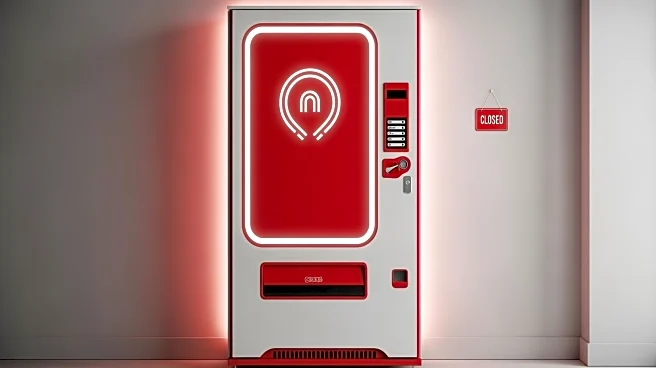What's Happening?
Chick-fil-A has launched its first vending machine, which operates 24 hours a day, six days a week, and is closed on Sundays, mirroring the company's traditional store hours. This vending machine is part of a short-term test and is located in a Georgia
hospital. The machine, referred to as a 'market fridge,' offers a selection of Chick-fil-A's popular menu items, providing a convenient option for customers seeking quick service without the need for a traditional counter. This initiative reflects Chick-fil-A's ongoing efforts to innovate and adapt to changing consumer preferences while maintaining its core values.
Why It's Important?
The introduction of a vending machine by Chick-fil-A represents a significant shift in the fast-food industry, highlighting the growing trend towards automation and convenience. This move could potentially reshape how fast-food services are delivered, especially in high-traffic areas like hospitals where quick and easy access to food is essential. For Chick-fil-A, this innovation could lead to increased sales and customer satisfaction by offering their products in a new, accessible format. However, it also raises questions about the future of traditional fast-food service models and the potential impact on employment within the industry.
What's Next?
If the test proves successful, Chick-fil-A may consider expanding the vending machine concept to other locations, particularly in areas where traditional store setups are less feasible. This could lead to a broader rollout of automated service options across the country. Stakeholders, including other fast-food chains, will likely monitor the results closely to assess the viability of similar initiatives. Additionally, consumer feedback will play a crucial role in determining the future of this service model.
Beyond the Headlines
The introduction of vending machines in the fast-food industry could have broader implications for labor dynamics, as automation continues to replace traditional roles. This shift may prompt discussions about the balance between technological advancement and job preservation. Furthermore, the success of such initiatives could influence other industries to explore similar automated solutions, potentially leading to a more widespread adoption of vending machines in various sectors.
















